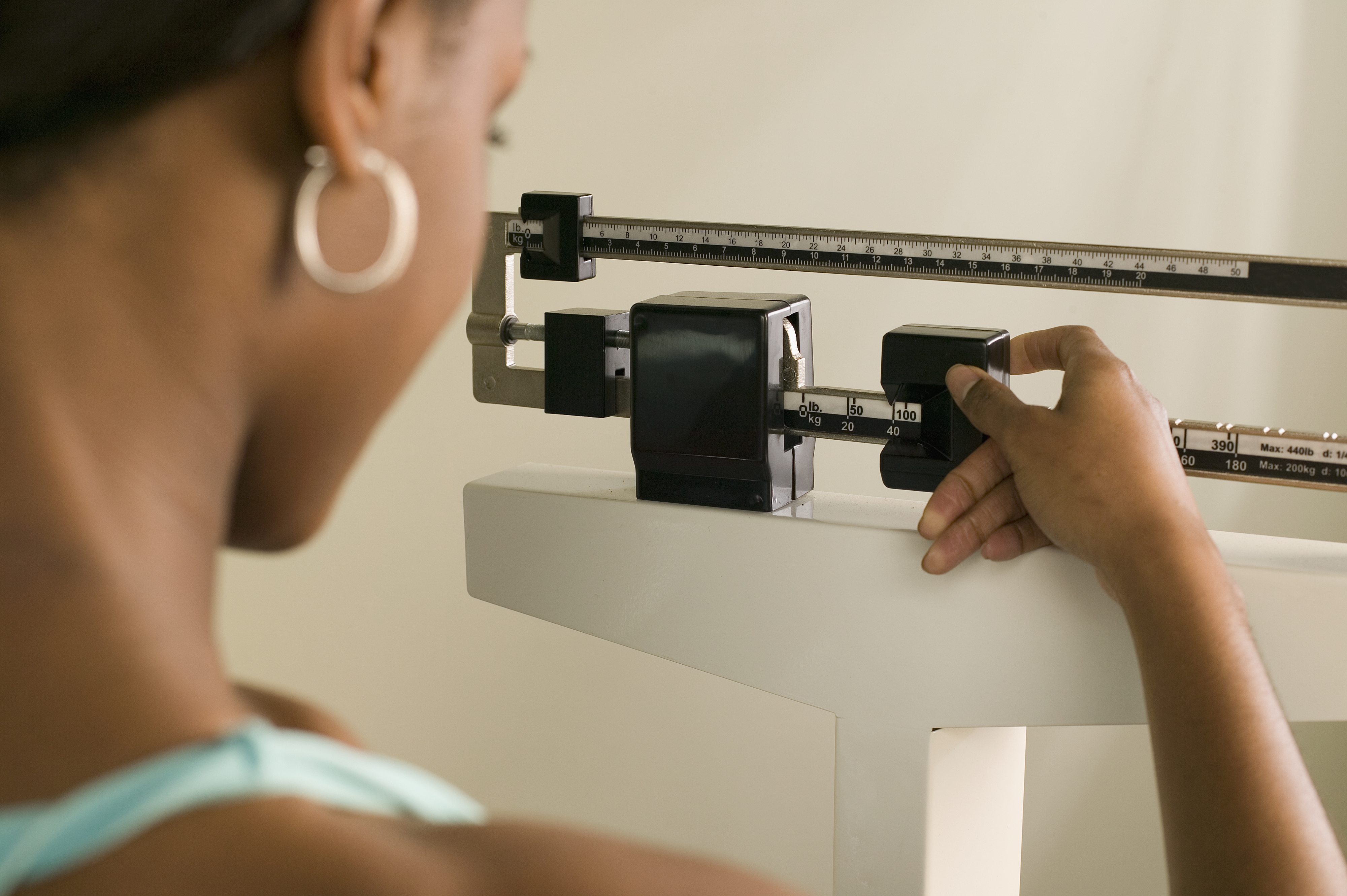If you've ever been objectified, you know that it doesn't feel great. For me, it brings on a queasy mix of shame and long-burning anger when my humanity is denied in this way. But what if there's more to it than just feeling bad?
If you're not familiar, objectification is when a person is treated as less-than-human and more like an object.
If you're a woman, you probably know this feeling all too well. Many of us report it beginning even before puberty with grown men catcalling us as children, which I shouldn't have to tell you is absolutely vile behavior.
Recently, I came across Roxanne Nai'a Felig (@naia_papaia) on TikTok where she's been sharing some mind-blowing insights from her research on objectification.

In a TikTok titled "Why You Should Be Concerned About Objectification," Nai'a explains how her research and related studies have found that when women experience objectification, it's not just a metaphor for the way we're being treated. Instead, objectification is a very real phenomenon in the brain that causes people to treat us as less-than-human.
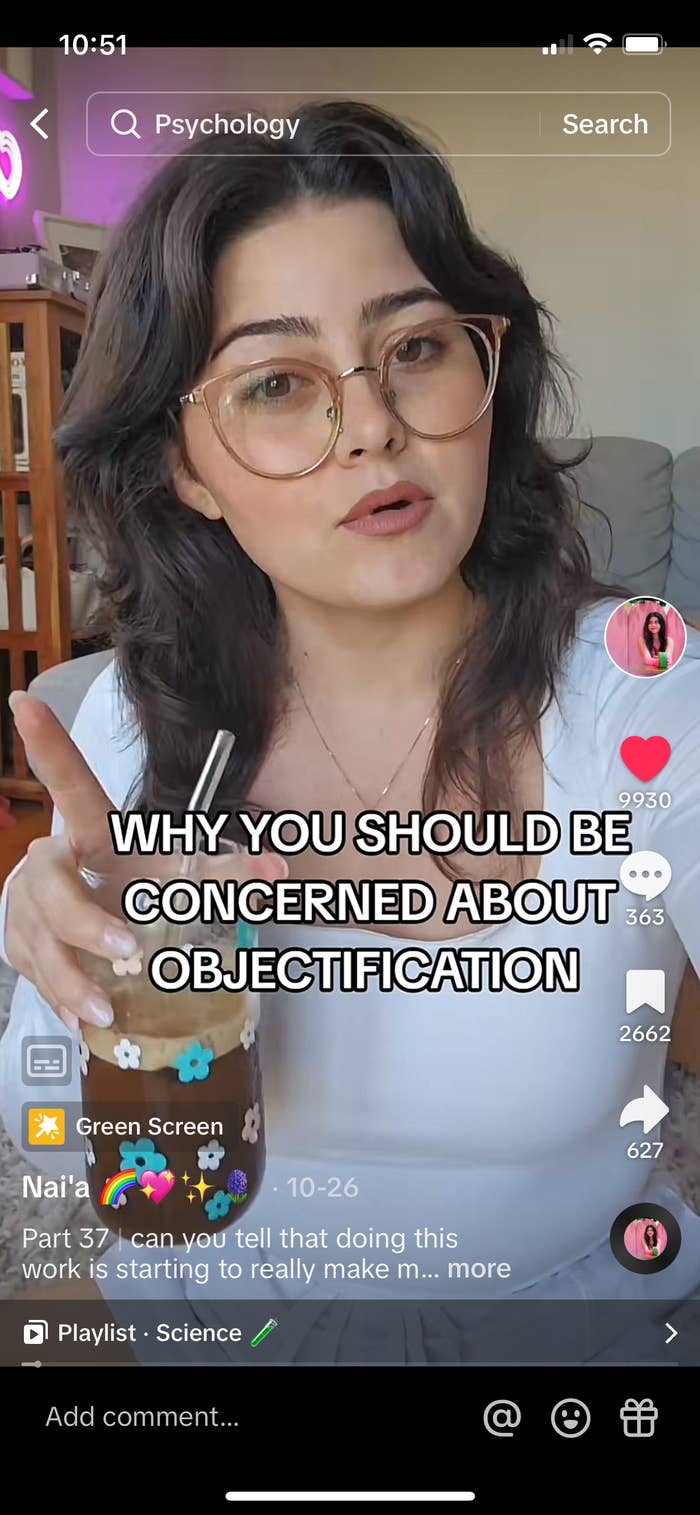
In the video, she explains, "We found that when women are objectified in a way where they are equated with literal objects, as opposed to dehumanized in a way where they're equated with animals, it predicts reduced perceptions of their capacity to suffer because objects can't feel pain."
In her research, Nai'a studied objectification in the specific context of domestic violence against women, and the conclusions are stomach-churning.
She says, "We found that that lack of perceived suffering predicted reduced sentencing for the perpetrator. It also predicted reduced perpetrator blame, because why would someone need to be punished for harming an object?"
She goes on to share that a recent neural study on objectification found similar results. "They find that when we are shown sexualized women, we neurologically cannot recognize their perceptions of pain."
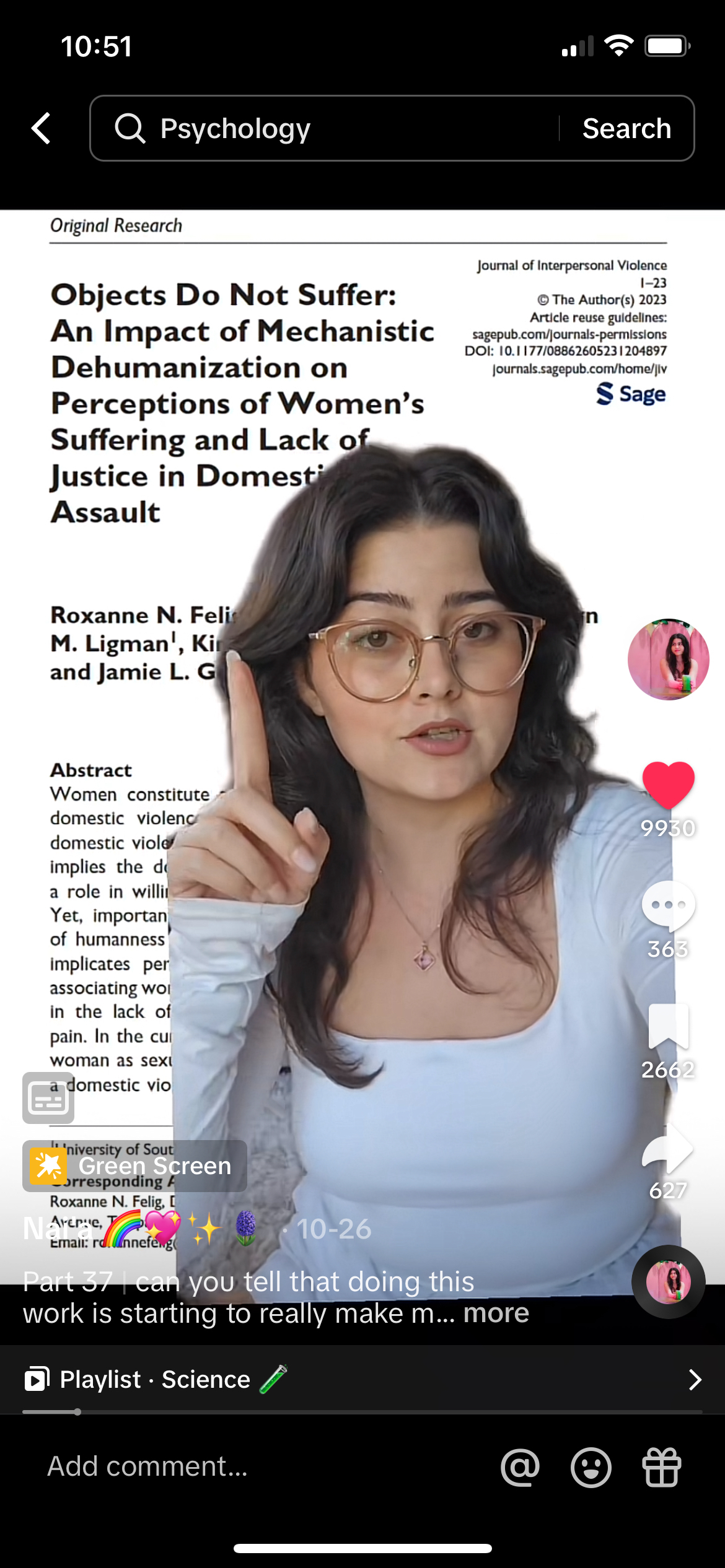
And this phenomenon also holds true when we objectify ourselves. Nai'a has previously done a study inspired by Cardi B's "A Hoe Never Gets Cold" theory where she found that women who ranked higher in self-objectification literally did not feel cold when they should. And neural research has also now been done to support that conclusion.

She concludes her video saying, "The fact that we have neuro evidence, physiological evidence, as well as behavioral evidence that when people are objectified by others or when they objectify themselves, they are actually rendered as a literal object that lacks sensation should really be frightening to you, because we live in a culture where specific groups of people are objectified a lot."
And this doesn't just apply to women. Nai'a points out that workers, particularly in lower wage jobs, are often objectified by employers who ignore their struggles and suffering. Makes you see the term "human resources" in an icky new light.
I thought Nai'a's research was equal parts disturbing and fascinating, and TikTok commenters quickly applied her findings to their own experiences with objectification. Exhibit A: Is this why the gyno always calls excruciating pain "just a little pressure"?

Exhibit B: almost everything about the fashion industry.

Or exhibit C: the unfortunate prevalence of misdiagnosis and gaslighting in women's healthcare.

And then there's this person's dad who went ahead and said the quiet part loud.
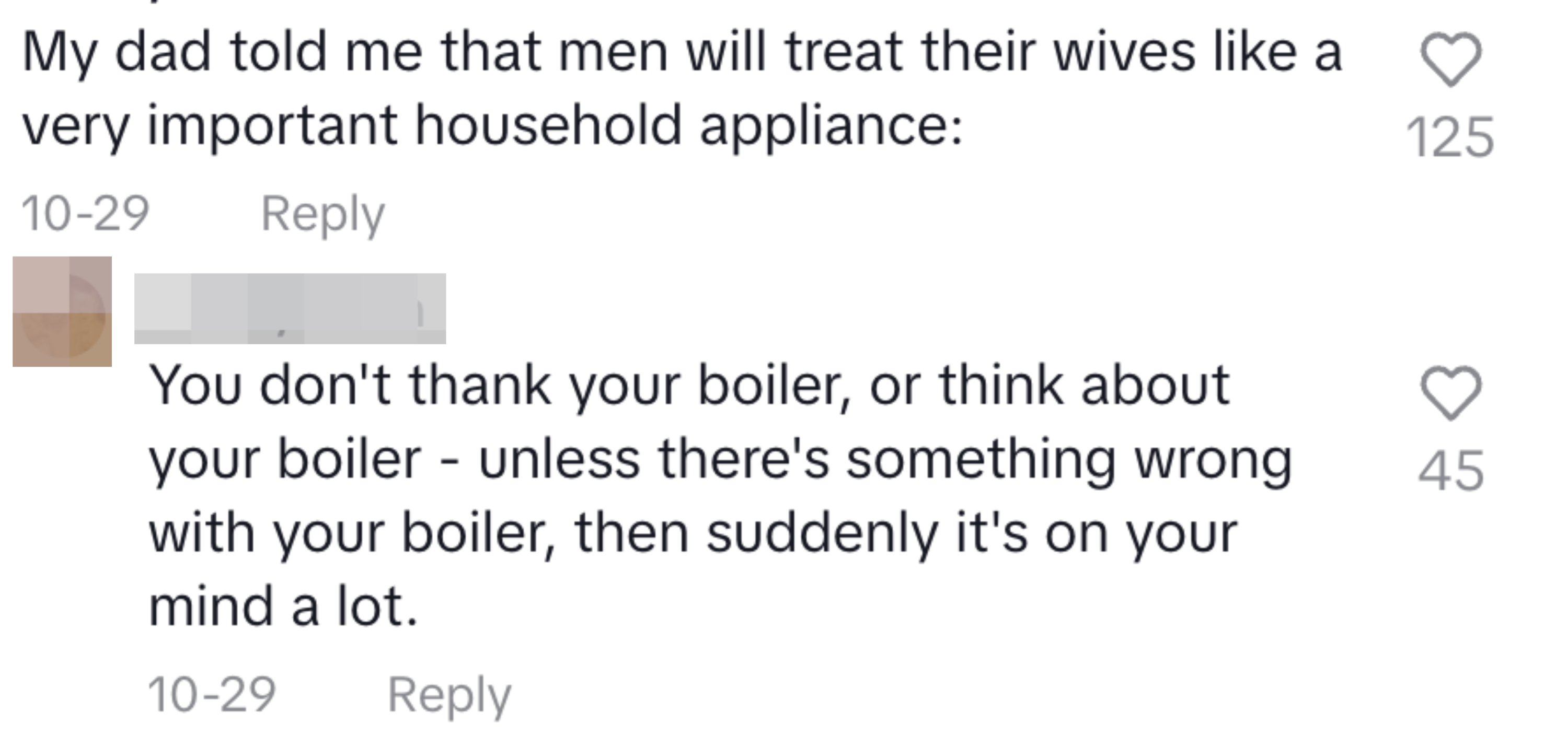
Nai'a told BuzzFeed that commenters are absolutely right in tying these examples to her research, especially as it pertains to women's health. "I think this all speaks to a historical context that denied women the same humanity as men, and this is especially true for women of color. Plenty of research shows that Black women are dehumanized more than white women, and many modern gynecological procedures were tested on these women without proper anesthesia."
"My research finds that dehumanization is the link between being objectified and not being seen as capable of suffering, so you can see how this is especially problematic for non-white women who are more often dehumanized.
For a great dive into this, I highly suggest The Pain Gap by Anushay Hossain, which I am currently reading!"
She also explained how objectification is defined and presented in her research. "Determining if a woman is being objectified could be inferred from the way she is physically presented, like in some media images where women’s body parts are emphasized as if they’re the only part that matters."
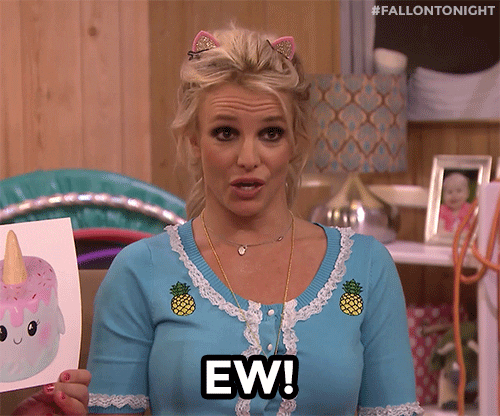
But that's not the only way objectification of women can appear. "For example, some research finds that sexualized women are cognitively processed the same way we cognitively process images of actual objects. Findings like this tell us that when women are presented in ways that emphasize their physical appearance, they are more likely to be objectified, and we mean that quite literally — they are perceived less as people, and more as objects."

I also had to learn more about her research on self-objectification. Nai'a says, "'Objectification theory' argues that girls and women grow up in cultures where their bodies are constantly observed by others, more so than men's bodies, and that this creates an internalization of the observer's perspective, known as self-objectification."
"This is, essentially, the extent to which you are focused on your external appearance, and it relates to things like high body shame, reduced body awareness, and disordered eating."
And she told me a little bit more about her "hoe never gets cold" study. "Basically, if we know that self-objectification is related to lower body awareness, maybe that can partially explain this behavior, rather than women being cold but wearing the cute outfit anyway. To test this, we surveyed women waiting in line in front of night clubs and bars on some unseasonably cold nights in 2020 pre-COVID."
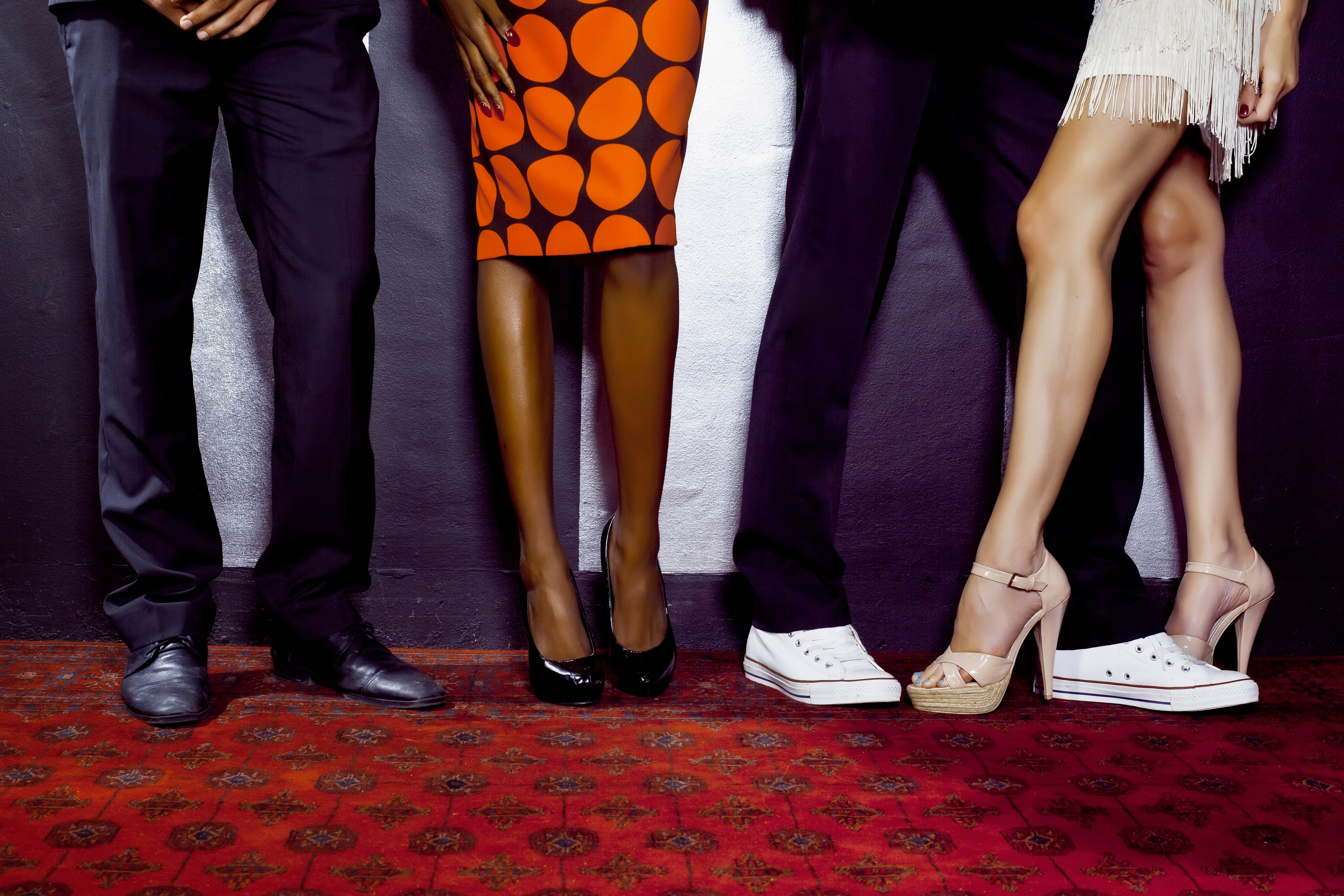
And the results indicated that her hypothesis was correct. "Our findings suggest that when women self-objectify, it is quite literal, and they distance from their body sensations. We found that women low in self-objectification showed an intuitive relationship between skin exposure and perceptions of coldness, and felt colder when wearing less clothes, but women highly focused on their appearance did not feel colder when wearing less clothing."
"And while this was a fun, kind of quirky study, the implications for this could be very severe. If women are prioritizing their appearance and not feeling the consequences, could there potentially be harmful consequences?"
And she says the dehumanizing and disconnecting effects of objectification should concern us all. "Since objectification involves seeing someone as less of a person and more of a thing, you can imagine it has harmful consequences. When women internalize this, it relates to body shame, anxiety, disordered eating, and sexual dysfunction to name a few."
